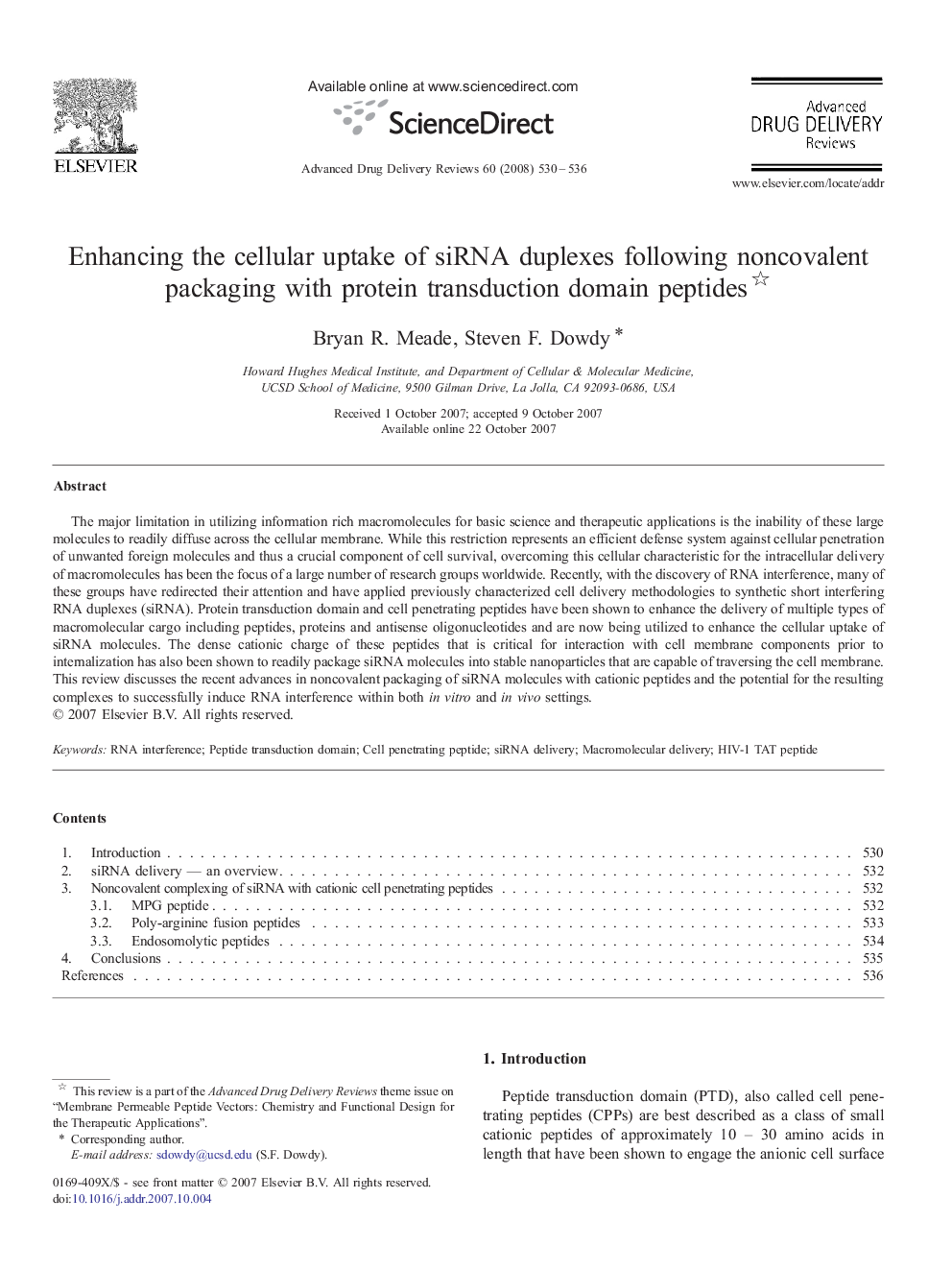| Article ID | Journal | Published Year | Pages | File Type |
|---|---|---|---|---|
| 2071815 | Advanced Drug Delivery Reviews | 2008 | 7 Pages |
The major limitation in utilizing information rich macromolecules for basic science and therapeutic applications is the inability of these large molecules to readily diffuse across the cellular membrane. While this restriction represents an efficient defense system against cellular penetration of unwanted foreign molecules and thus a crucial component of cell survival, overcoming this cellular characteristic for the intracellular delivery of macromolecules has been the focus of a large number of research groups worldwide. Recently, with the discovery of RNA interference, many of these groups have redirected their attention and have applied previously characterized cell delivery methodologies to synthetic short interfering RNA duplexes (siRNA). Protein transduction domain and cell penetrating peptides have been shown to enhance the delivery of multiple types of macromolecular cargo including peptides, proteins and antisense oligonucleotides and are now being utilized to enhance the cellular uptake of siRNA molecules. The dense cationic charge of these peptides that is critical for interaction with cell membrane components prior to internalization has also been shown to readily package siRNA molecules into stable nanoparticles that are capable of traversing the cell membrane. This review discusses the recent advances in noncovalent packaging of siRNA molecules with cationic peptides and the potential for the resulting complexes to successfully induce RNA interference within both in vitro and in vivo settings.
